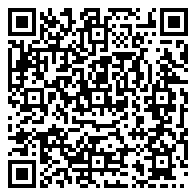Workshop – Building a Shared Agenda: Collaborating on Socio-Legal Research to Improve Refugee Status Decision-Making
This workshop will bring together practitioners, advocates, institutional actors, and empirically-minded scholars to discuss cutting-edge socio-legal research relating to refugee status determination. The workshop will focus on research engaging with quantitative methods (e.g. statistics, predictive algorithms, machine learning), as well as social-scientific research relating to credibility assessment. The main objective is for people doing practical work in the field to propose research questions relating to these topics and to provide early feedback on scholarly research attempting to answer some of these questions.
The workshop will be held on May 17, which follows the final day of the Canadian Association for Refugee and Forced Migration Studies Annual Conference. It will be held at the newly renovated Osgoode Professional Development in downtown Toronto.
Pre-Workshop Consultation
In November, workshop participants were invited to submit anonymous questions arising out of their practical experience with the Canadian refugee status determination system. These were questions that they would like to ask an academic researcher: a psychologist, sociologist, anthropologist, linguist, statistician, data scientist, etc. We were particularly interested in questions about how those involved in various aspects of the refugee determination process can engage with quantitative data, as well as questions related to evaluating a claimant’s credibility in refugee determination hearings. Workshop participants then voted on the questions that they are most interested in having addressed. The top three questions in each category are as follows:
Quantitative Research:
I would like to understand the ethical and human rights implications of using new technologies such as AI, modelling, big data, and algorithms in the refugee status determination context.
I would like to understand how decision-making bias can be measured.
What impact do interpreters and translators have on patterns in outcomes in refugee claims? How frequently are there errors in interpretation and how often do those errors affect the Board’s credibility assessments?
Research on Credibility:
I would like to better understand credibility assessments in general. Sometimes it seems like credibility comes down to hunches and cross-checking the record for small inconsistencies or contradictions. Is there some better way to do this?
I would like to know more about the cultural intelligence of IRB Members and their awareness of the claimants’ social context. Is there research specifically in the Canadian refugee law context about this? What can IRB Members usefully get out of research in this area?
How does testifying via an interpreter affect how a decision-maker hears or responds to testimony, particularly in terms of credibility?
DRAFT AGENDA BELOW
Download (PDF, 120KB)
The draft agenda is also available as a PDF download.
Tickets: https://crs1.apps01.yorku.ca/machform/view.php?id=25702.

